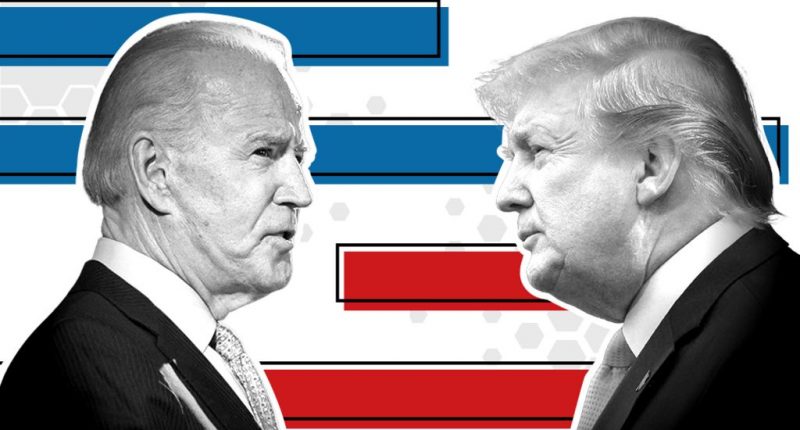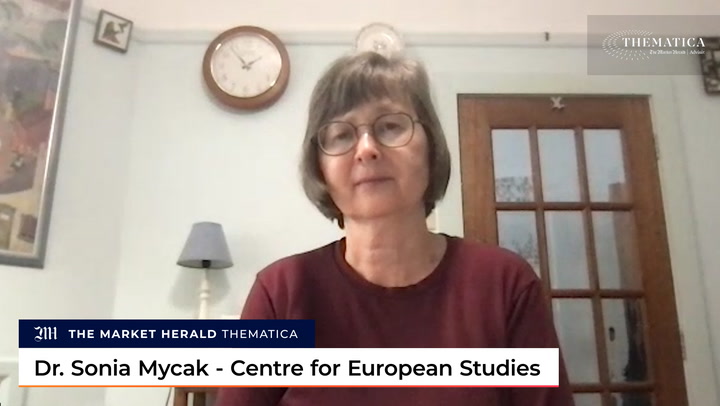- A unique polling method from the University of Southern California (USC) which correctly predicted Donald Trump’s 2016 election win is pointing to a Trump reelection next week
- The method asks voters about how they think people in their social circle will vote in order to account for social judgements when polling voters
- This implicitly gives the polls a larger and more diverse sample size and makes it less intimidating for voters to admit support for an unpopular candidate
- The unique method has a perfect track record, accurately predicting the results of several global elections in recent years
- Now, the USC polls are predicting a repeat of 2016: Biden will win the popular vote by a slim margin, but Trump will seize an Electoral College victory
- Nevertheless, general national polls still have Biden up over 7 per cent and holding on to a stable lead
A unique polling method from the University of Southern California (USC) that correctly predicted Donald Trump’s 2016 election win is pointing to a Trump reelection next week.
The method used by pollsters at USC tries to predict electoral votes based not only on own-intention questions but what the poll’s website calls “social circle” questions.
The polling method attempts to account for social judgements when polling voters, similar to the “social desirability bias” made popular by political and corporate market research polling firm the Trafalgar Group.
What’s more, USC pollsters have had a perfect record for predicting several global elections over many years using their unique methods.
“When we calculate how many electoral votes each candidate could get based on state level averages of the own-intention and social-circle questions, it’s looking like an Electoral College loss for Biden,” the poll’s website said.
“We should note that our poll was not designed for state-level predictions, and in some states we have very few participants. Even so, in 2016 it predicted that Trump would win the electoral vote.”
Social circles and shy voters
The pollsters said research on social judgements shows that people generally know their social circles quite well. From income distribution, health, and even relationship satisfaction, USC explained people are often “in the right ballpark” in knowledge about their friends.
In light of this, the pollsters don’t ask voters how they will vote, but how they think their closest friends will vote.
“So, we’re hoping to learn whether it’s possible, from this question, to harvest this ‘wisdom of one’s own crowd’ to predict the election as well as, or even better than, the standard questions about one’s own voting intentions,” the pollsters said.
It comes down to three key factors:
Firstly, by asking voters how their social circles will vote, the polls implicitly have a larger and more diverse sample of participants.
Secondly, it can be less intimidating or embarrassing for a voter to say their friends plan to vote for an unpopular candidate rather than their own intention to vote for that candidate. This is designed to capture the “shy Trump voter” that many speculate pushed him over the edge against Hillary Clinton in 2016.
Thirdly, the pollsters said we are all influenced by our social contracts, meaning even if one reports their intention to vote for a candidate that most of their friends do not support, there is a chance they will be persuaded to change their vote to match their social circle when push comes to shove.
“So, asking about the voting intention of someone’s social circle could offer a glimpse of that person’s future beliefs, sort of like a crystal ball,” the pollsters said.
While this may sound far-fetched, the polling method has a stellar track record: so far, it has proven more accurate than traditional polls in every scenario in which it’s been tested. This includes the 2016 U.S. presidential election, the 2017 French presidential election, the 2017 Dutch parliamentary election, the 2018 Swedish parliamentary election, and the 2018 U.S. election for the House of Representatives.
Now, the polling method is suggesting a repeat of 2016: the popular vote will go to Joe Biden by a thin margin, but Donald Trump will seize an Electoral College victory.
Trafalgar Group’s polls are predicting similar results.
What about the general polls?
Of course, this is not to say the USC and Trafalgar methods are flawless. When looking at general U.S. national polls, Biden seems to be faring along better than Clinton did in 2016.
While Clinton flexed double-digit leads in national polls in the months leading up to the 2016 election, her lead was unstable. Three months out from voting day, Trump snagged a small momentary lead until Clinton quickly regained the lost ground back to an average lead of around 7 per cent.
This lead dipped to less than a per cent 50 days out from Election Day, but once more spiked back up to 7.1 per cent soon after.
Meanwhile, Joe Biden’s lead in national polls has so far been noticeably more stable. Over the past 150 days, Biden’s lead has rarely dipped below 6 per cent and has risen over 10 per cent twice.
With just five days to go until Election Day, the accuracy of general national polls versus USC and Trafalgar’s unique methods will be revealed soon.







